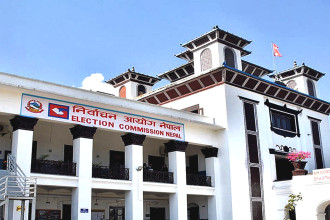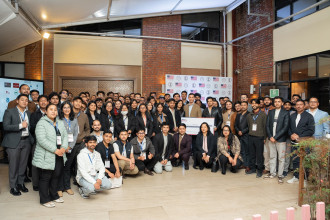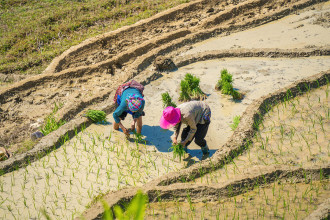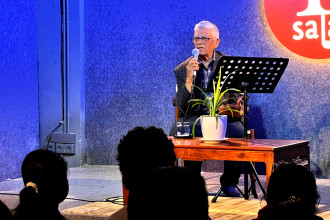
Investing in disability-friendly infrastructure and services can help hoteliers and entrepreneurs tap the accessible tourism market in Nepal, a growing segment globally, while driving economic growth and accelerating recovery, reveals a new International Finance Corporation (IFC) study.
The report, Open to All: A Survey on Accessibility for Persons with Disabilities in Nepal’s Hotels, covers 90 starred hotels in major cities. While 95% of the participating hoteliers are aware of accessible tourism as a concept, they have not invested in necessary measures to ensure accessibility for persons with disabilities.
With existing facilities limited to ramps and lifts in most hotels, only 17% of the surveyed hotels put up signs to help visually-impaired guests and 74% of the hotels did not have any Braille signage on door plaques and room directories, according to the survey. Further, only about 9% of the hotels had staff who were trained in or had basic knowledge of sign language while only 33% of the participating hotels had extra wheelchairs for guests.
The poor numbers were attributed to a range of factors including old structures, remote locations, and fewer guests with disabilities. Many of the surveyed hotels also cited extra cost as a key deterrent to building ramps, purchasing wheelchairs, or providing other accessible infrastructure and services.
“Globally, the concept of accessible or inclusive tourism has gained ground in recent times. Accessibility at tourism destinations is key to responsible and sustainable tourism to ensure everyone can be part of the tourism experience, regardless of physical limitations, disabilities, or age,” said Wendy Werner, IFC Country Manager for Nepal, Bangladesh, and Bhutan. “Accessible tourism is not only a human rights, it also makes business sense.”
According to the World Health Organisation, globally, around one billion people are affected by some form of disability. According to disability rights experts in Nepal, as more persons with physical limitations and disabilities travel around the world, a focus on accessible infrastructure in hotels as well as tourism destinations can boost the number of foreign tourists in the country.
“Currently, around 2,000 tourists with disabilities visit Nepal every year,” said President of the National Federation of the Disabled – Nepal, Mitra Lal Sharma. “But, with improved facilities and conditions that are more disability-friendly, the number could easily go up to over 10,000 tourists a year.”
“Although accessible tourism is relatively new in Nepal, we are confident that with adequate support, we can push ourselves to explore and attract this growing segment of tourists to our country,” said Shreejana Rana, President of Hotel Association Nepal. Dr Dhananjay Regmi, CEO of Nepal Tourism Board, stressed for collective efforts to explore the opportunity of accessible tourism in Nepal. He said Nepal can grab this opportunity with strong collaboration among government ministries, hoteliers and stakeholders.
Similarly, Bernerd Cocco, Deputy Residential Representative, UNDP, appreciated the initiative that Nepal has taken towards accessible tourism and said the survey report on accessible tourism was excellent to pave the way towards it. “This will definitely add to the knowledge and help make Nepal’s tourism sector more accessible,” he added.
Raju Basnet, General Secretary of National Federation of Disabled - Nepal, said disabled people were compelled to bear unequal, unfair treatment in hotels due to lack of accessible infrastructure. “Neither are people aware about disabilities nor do they want to create a friendly climate and we have to correct them now,” he said.
The study was conducted by the Society of Economic Journalists–Nepal, in collaboration with the National Federation of the Disabled–Nepal, with financial and technical assistance from IFC.
Published Date: September 28, 2021, 12:00 am
Post Comment
E-Magazine
RELATED B360 National





